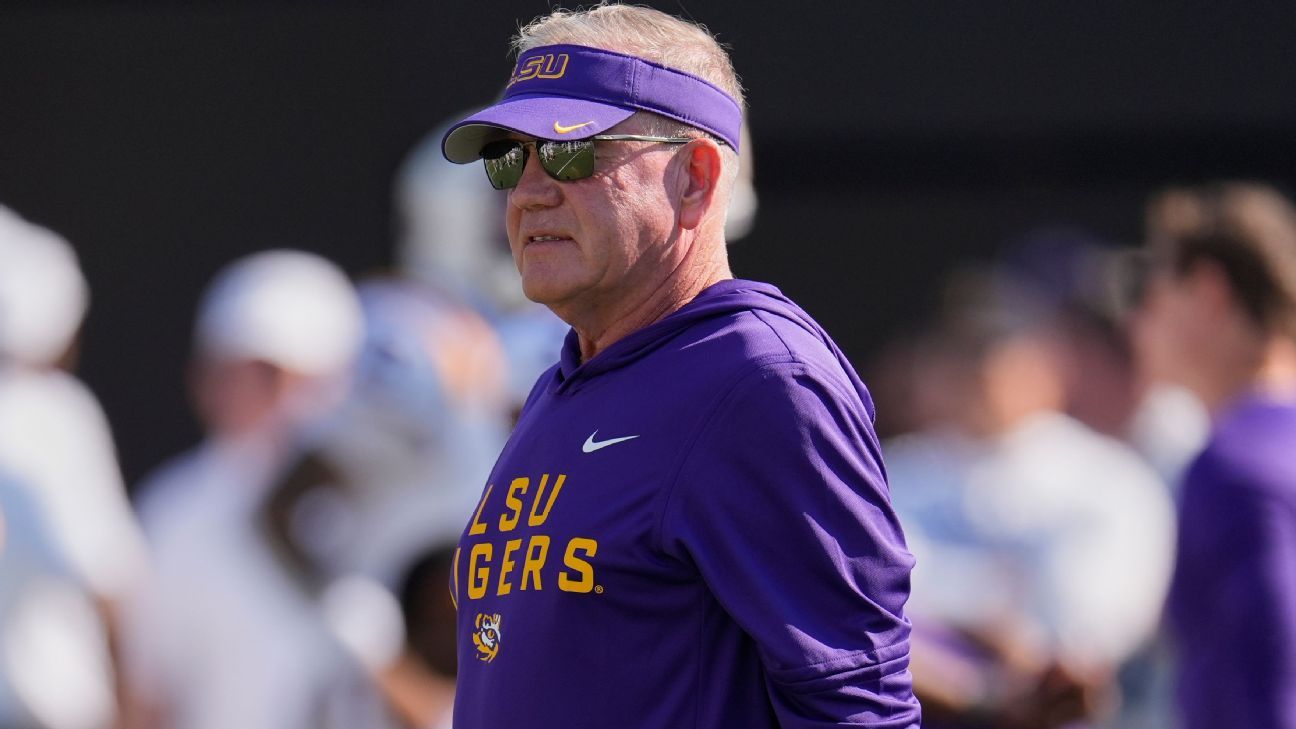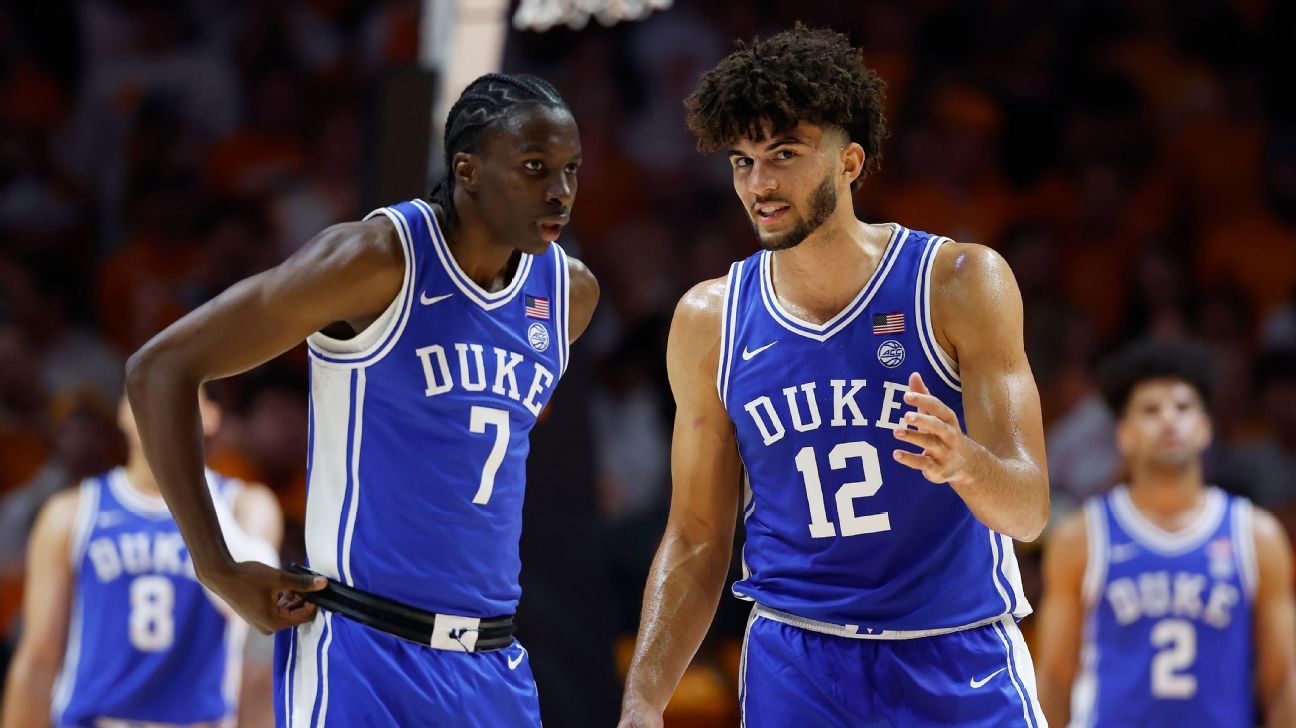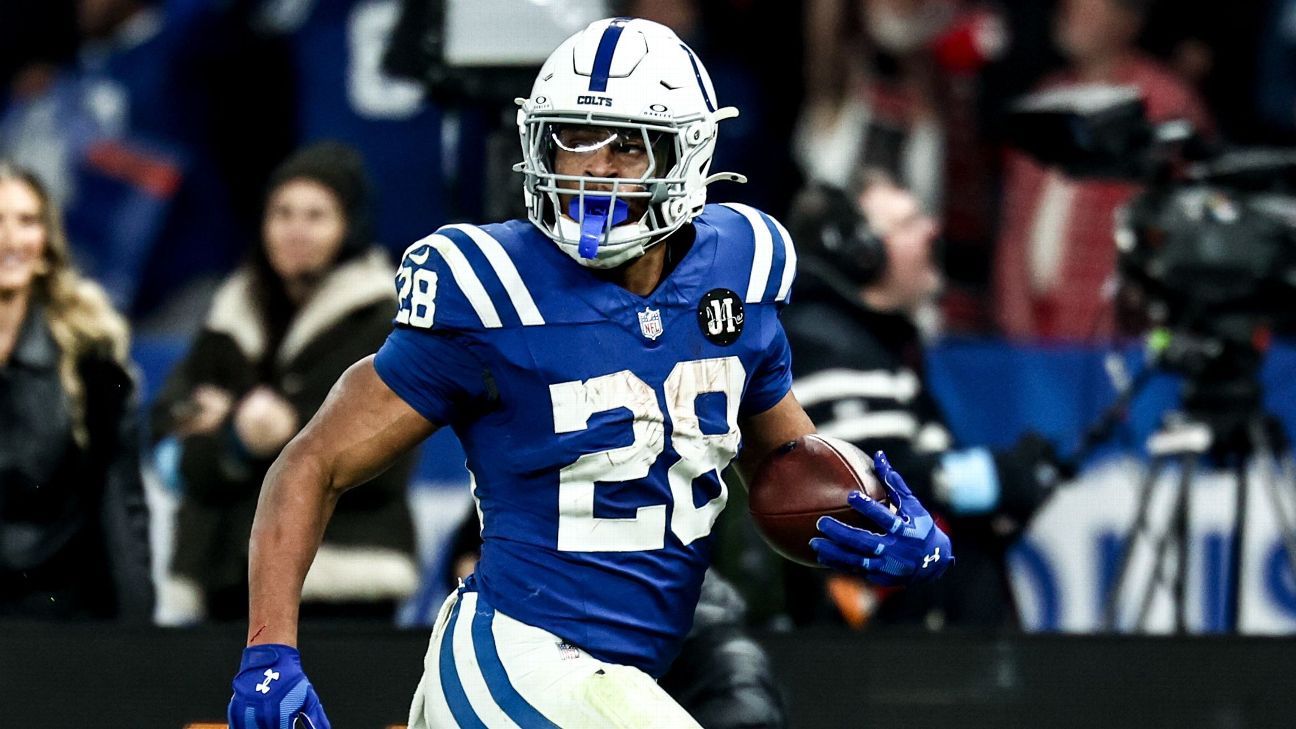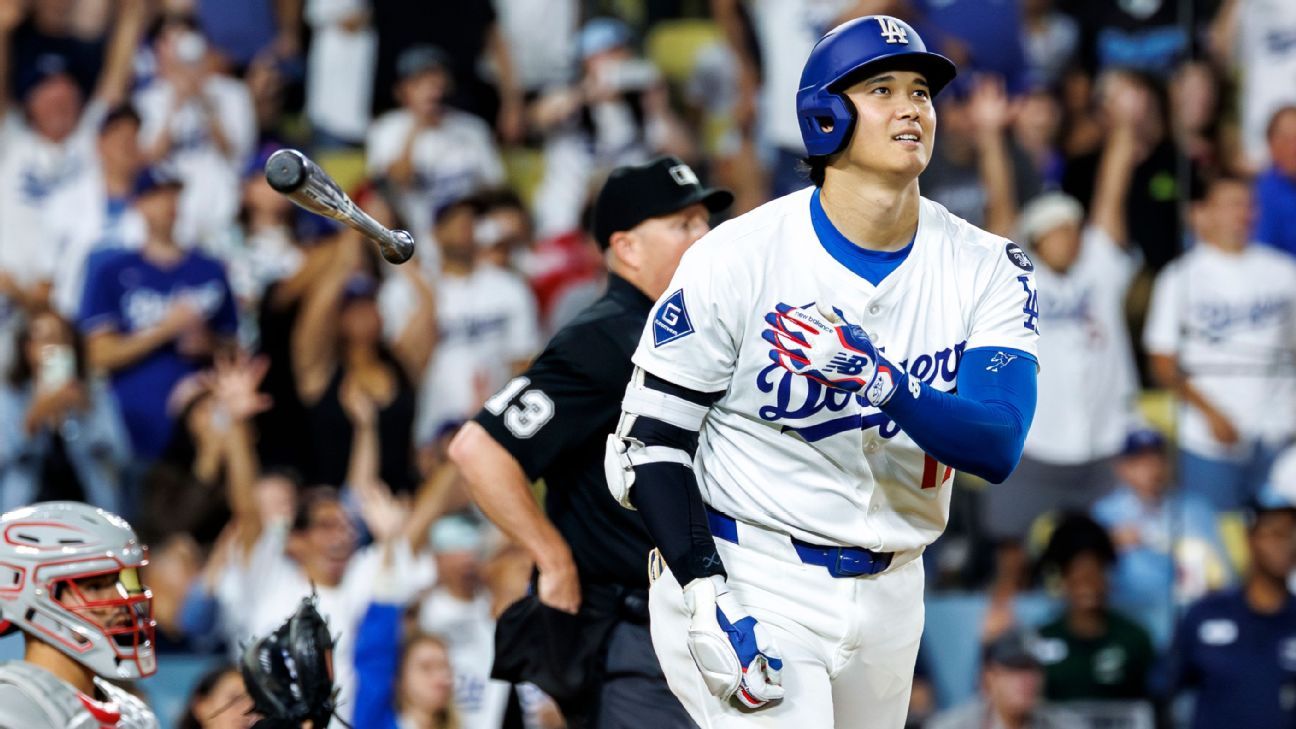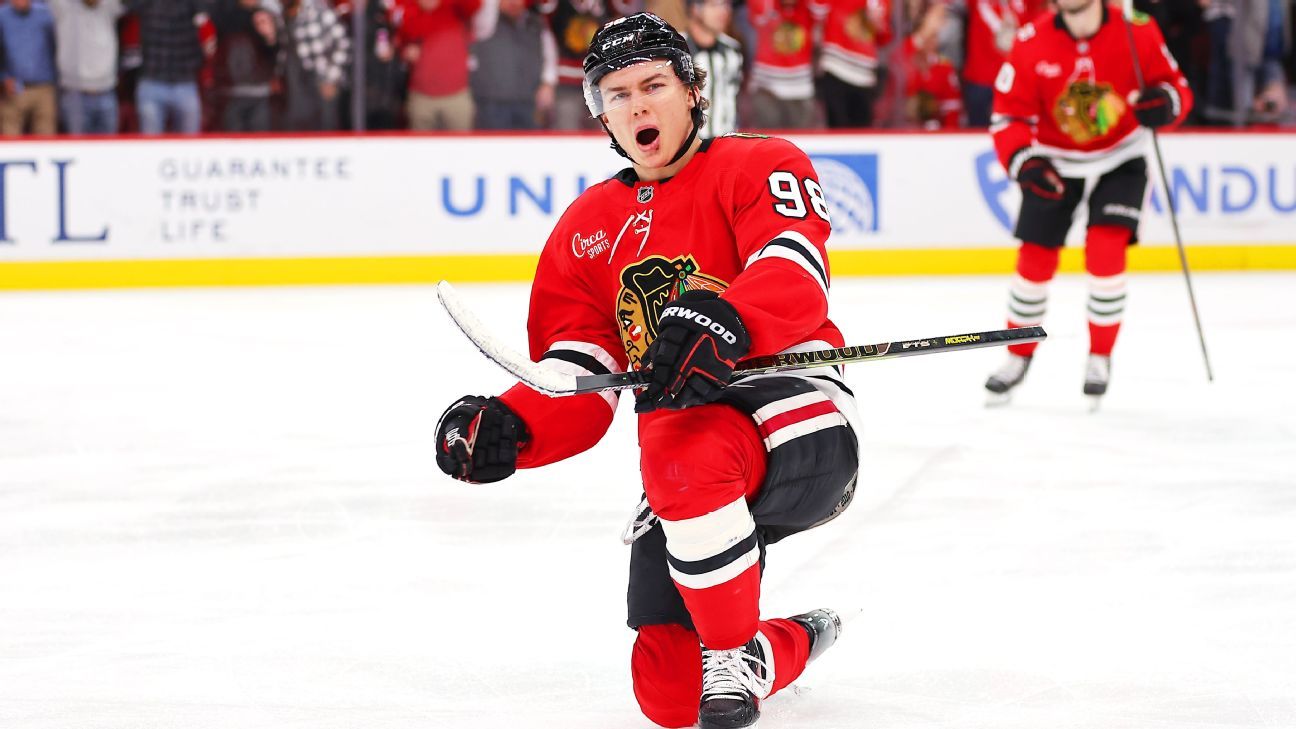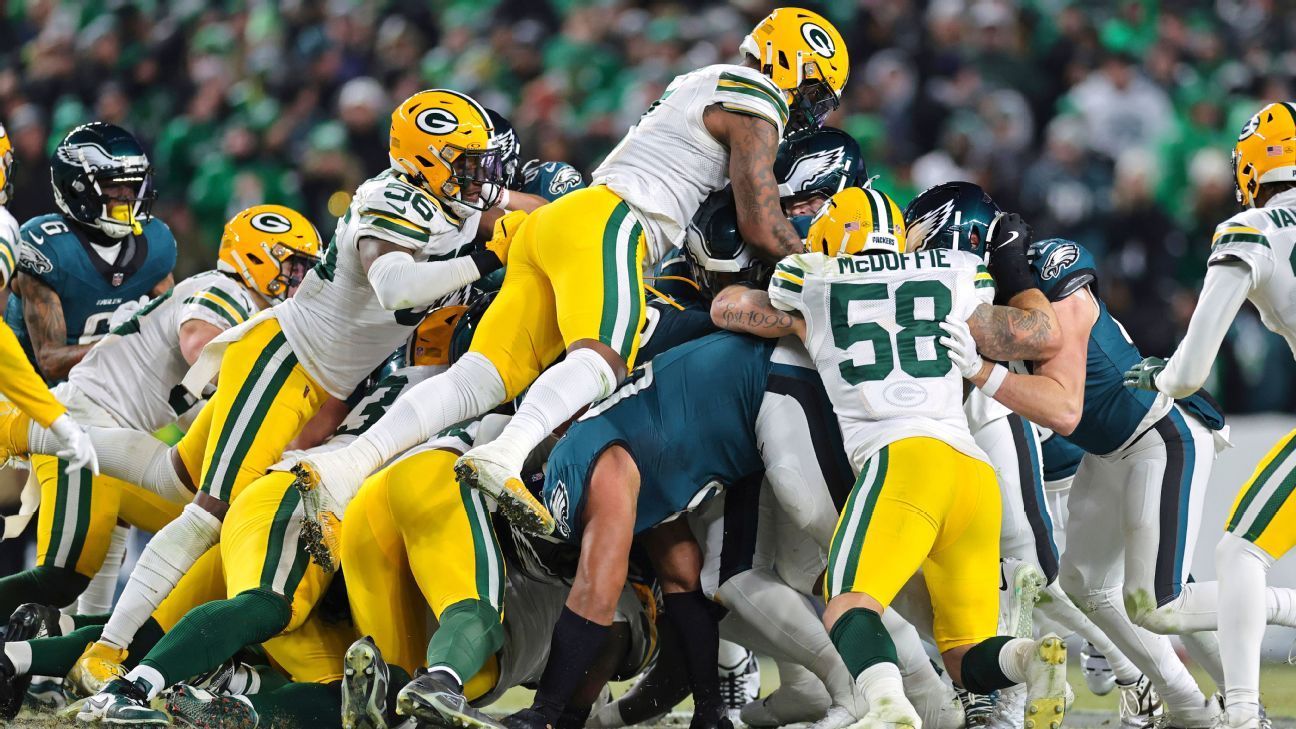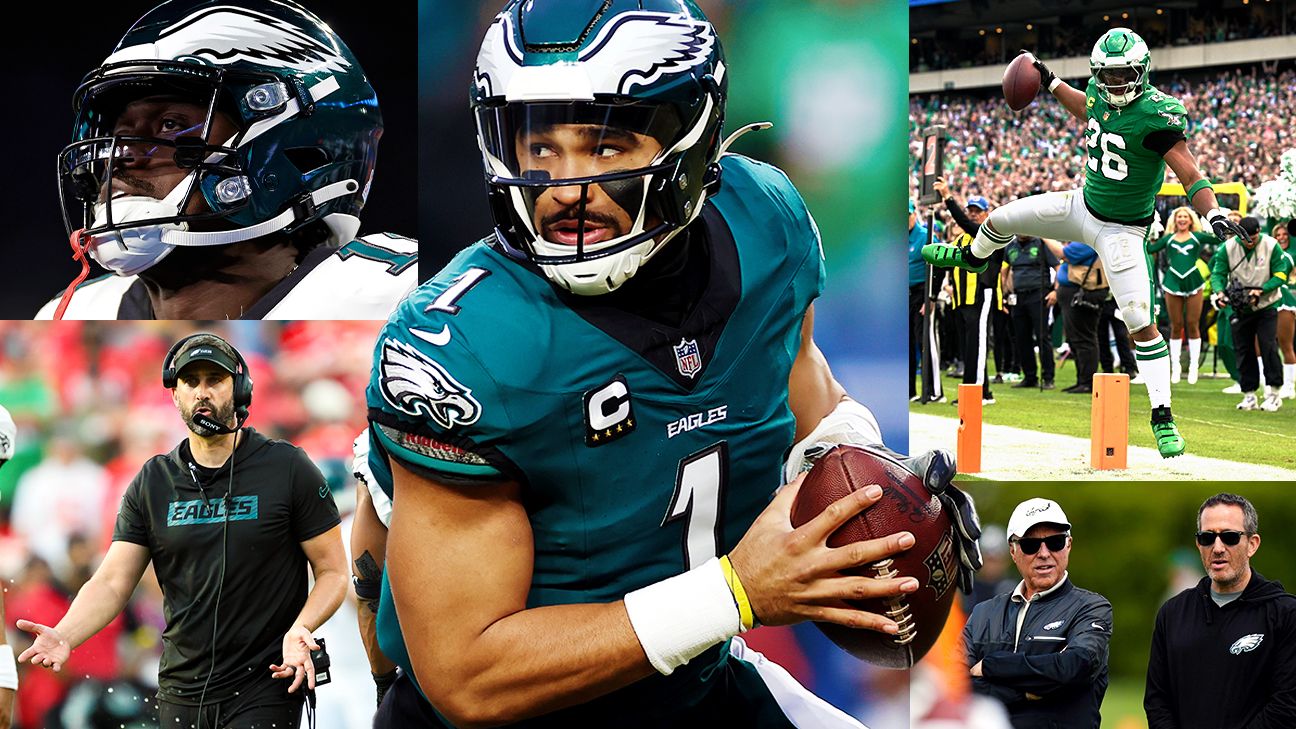ON FRIDAY, DR. Arthur C. Bartner, the 85-year-old retired band director at USC, stood at the 50-yard line of the Los Angeles Memorial Coliseum before the Trojans' game against Northwestern, looking for an old friend.
Suddenly, Mick Fleetwood, the legendary drummer from Fleetwood Mac, showed up. He saw Bartner, and his face lit up. The 79-year-old drummer embraced his old friend in a huge hug.
"The look on his face was priceless," Bartner said. "I mean, there was a genuine appreciation and love for our relationship through the years."
In 1979, the two men joined forces to make American music history, when Fleetwood convinced Bartner to lend him the Trojan Marching Band for the recording of "Tusk," the title track of a Fleetwood Mac album at the height of the band's powers. It would go on to earn both bands two platinum albums and create an iconic marching band song.
Michael Barash, the founder of College Marching, which covers bands across the country, said nobody else has what USC has in "Tusk." He cited the popularity of "Dixieland Delight" at Alabama, "Country Roads" at West Virginia and "Rocky Top" at Tennessee as comparable examples. But there's one big difference. "None of those bands can say they recorded the original track with the artist," Barash said.
That's why Bartner became something of a star and his group became known as "Hollywood's Band." On Friday, he felt the need to remind Fleetwood of what the collaboration did for him.
"You made my career," Bartner said he told Fleetwood. "You made me famous, Mick."
Soon after, Fleetwood joined the Trojan Marching Band to play their creation together once again. For Bartner, it was a "joyous occasion." Not only did he get to surprise Fleetwood, but he got to see Fleetwood play "Tusk" in person once again, 46 years after the first performance.
"At 85 years old, how lucky, how blessed am I to have an evening like this?" Bartner said. "There's not many people that can live such a moment in your life and get to do it twice."
FLEETWOOD MAC GOT whatever it wanted in 1979.
"Rumors," released in 1977, was one of the biggest albums in history, leading to packed stadium shows around the world and putting the group on par with Led Zeppelin and The Eagles. Led by classics such as "Dreams," "Go Your Own Way" and "Don't Stop," the record spent 31 weeks at No. 1 and has sold more than 40 million records.
Afterward, the band set out on an adventure in record making, exploring new sonic techniques and hoping to rebel against their record label. They were given a massive budget of $1 million, making the album, at that point, the most expensive of all time. L.A.'s legendary Village Recorders studio built the band a new studio for them to record it in, including a custom booth at Stevie Nicks' request that was decorated to evoke a sunset in Tahiti.
But Fleetwood couldn't stop thinking even bigger. He visited his mother and sister in Normandy, France, and while there, he couldn't sleep. He was jet-lagged and had a few drinks. And to make matters worse, a brass band kept marching by, parade-style, outside the townhome where he was staying in Barfleur, a little fishing village. By 2 a.m., he gave up, sat on the balcony and watched the group go by. And it struck him. Wherever this little band went, even in the middle of the night, people followed.
He couldn't stop thinking about a guitar riff that bandmate Lindsey Buckingham had been toying with that had become known as the "Stage Riff," that he played all the time, yet they'd seemingly given up on figuring out how to make it a complete composition. Fleetwood thought, on that balcony, that he'd figured it out.
"Everyone in the band, including Lindsey, thought I was round the twist," he told ESPN, using a British phrase for, well, being nuts. "But I said, let's have a brass band develop that riff."
He returned to Los Angeles, 5,600 miles from his source of inspiration, and set his plan in motion. He placed a call to the USC band's offices, wanting to talk to someone from the Trojan Marching Band. It's Mick Fleetwood, he said. They said they'd have to call him back.
USC's band was no stranger to being in the middle of showbiz. They turned up frequently in movies and TV shows. But, still, the directors weren't used to one of the biggest names in music cold-calling them. There were always concerns it could be a prank call from some kid. Worse, it could be someone from UCLA.
Tony Fox, the assistant director, called back. He was stunned to find it genuinely was Fleetwood on the other end.
"They were the ones who contacted us and wanted to collaborate," Fox said. "It's the only time that's ever happened between a college band and a major rock group."
So Bartner, the longtime band director, and Fox, his trusted assistant and the arranger for the band, headed to Studio D at Village Recorders. There, the two college band directors worked with Buckingham and Fleetwood, two rock music giants, to arrange the score. Then they went back to USC and fine-tuned it. They got another call from Fleetwood.
He was even further round the twist. He told them they were going to record the track live at Dodger Stadium.
"That for sure nearly ended with me being taken to a mental institution by my fellow band members," Fleetwood said. "They said it would cost a fortune. I said, 'I'll pay for it.'"
But the band had a very famous fan in Dodger third baseman Ron Cey, a perennial All-Star who would become the 1981 World Series MVP. He had hung out with the band during the recording process before. And he had enough clout to call in a favor.
"He said, 'I'll get 'em to donate the place and open it up for you. I love this idea,'" Fleetwood said.
So on June 4, 1979, they showed up, 112 members of the Spirit of Troy, in full uniform, to record a song with Fleetwood Mac at Dodger Stadium. "Tusk" was born, and it became an iconic part of both bands' careers -- the tribal, hypnotic toms of Fleetwood, mixed with Buckingham's riffs and screeching vocals, and a huge band behind it. Fleetwood's vision came to life.
In December of that year, when Fleetwood Mac returned on tour for the album, the band played five shows at the Forum, home of the Showtime-era Lakers, and the Trojan band joined for each of them.
In everyone's memories, it's one of the most Los Angeles series of events. And it has become an iconic part of USC's history.
"Everywhere we go," Fox said, "people ask us, 'Play "Tusk," play "Tusk," play "Tusk."'"
MARCHING BANDS HAVE long adopted popular music into stadium anthems. The White Stripes' "Seven Nation Army" has become a staple worldwide. "Neck," started as a 1984 song by Cameo called "Talkin' Out The Side of Your Neck.," was arranged to become an HBCU band favorite, then soared into infamy at LSU where fans inserted lyrics so explicit that the school banned the song entirely.
But, according to Bartner and Fox, there was nothing like this that had ever come before, where a band's own directors helped create a song, then recorded the original with the band, a true collaboration.
It was no small undertaking. The band filmed a video of the surreal scene, one of the first behind-the-scenes videos ever released of a rock band's process. Engineers ran wires across the warning track to remote trucks. Bartner stood on a ladder in the middle of the field, surveying his charges, as Rodney Davis, his drum major, held up the music in front of him to conduct.
A larger-than-life character himself, Davis was a local student from nearby Carson, California, had already been the first Black student to live on USC's fraternity row, had been the first Black fraternity president, and now was the first Black drum major to lead the band. He served for an unprecedented three years. He hustled around making last-second changes to parts and to make sure everyone was ready to go. Davis became a star of sorts once the video, full of close-up shots of him high-stepping into Dodger Stadium, debuted on MTV in 1981.
Rehearsals were done live in the stadium: students practiced in dugouts and uniforms laid strewn in the outfield awaiting the final performance. There were on-site adjustments, not the least of which came from Fleetwood's manic drum solo in the middle of the song, which he never seemed to play the same way twice.
"Anything I've ever done and still do, I haven't got a clue what I'm doing," Fleetwood joked. "I don't even know what a verse or a chorus is, but I know in the moment I'm always on the edge of f---ing everything up."
For a band with hundreds of members that couldn't adapt on the fly, that posed a problem. The directors had to beg their new friend to try and stick to a plan.
"I remember going down on the field and I actually hadn't been playing in quite a while and I forgot how exhausting that middle bit was," Fleetwood said. "It's actually freeform. Everything they did was performance learned. And that really pays tribute to the band and their discipline, knowing that it sounded like it was just made up."
Students could freely chat up any of the members during rehearsals. Buckingham, Nicks, Fleetwood, and Christine McVie were all in attendance. John McVie, however, was sailing to Tahiti. So Fleetwood called Warner Bros. and asked if they had a full-size image of him, and they delivered, so a life-size posterboard of John was carried around all day.
Nicks, famously, was captured on video adeptly twirling a baton like a college majorette. Fleetwood said that was no act, and that she had grown up as a twirler.
"Stevie, she was the real deal," Fleetwood said. "The whole spinning thing, it's something I never learned to do with drumsticks. So I was unearthly jealous of her, like Tommy Lee or something. That was an impromptu idea, which of course was fantastic. She took the boys into battle stomping out with high heeled boots on. She was the official twirler of the day."
Nicks walked around watching rehearsals, and in outtakes of the video shoot, asked, "Who are we to deserve the USC band?"
After lunch on the field, the band suited up and recorded the final version. Fleetwood had headphones on with his hands over them, staring at the ground. With such a large ensemble playing in such a cavernous setting, keeping time was a monumental task, and Fleetwood was pounding the ground with his foot.
"I actually remember doing that," he said. "I had the track in the cans. I was sort of a desperate Dan. That stomping on the ground was for a very real reason, especially being a drummer. This thing's got to be in time."
The finished product became the first single off the highly anticipated album. Fleetwood wanted it to have an unusual sound and to signal that he wasn't putting out a sequel to "Rumors."
"Tusk" was released just three months after the Dodger Stadium session, with plenty of studio sounds added to it, including Fleetwood slapping a leg of lamb with a spatula. The song was Fleetwood Mac's biggest hit in England since 1973, and the combined group became the largest ensemble ever to chart in the UK, but could not surpass the Mormon Tabernacle Choir's 320-member recording of "The Battle Hymn of the Republic" in the United States.
In October of 1979, the band performed at the dedication for Fleetwood Mac's star on the Hollywood Walk of Fame. After the single sold more than a million copies, the album went platinum. At halftime of the 1980 homecoming game against Arizona State, members of Fleetwood Mac presented Bartner with a platinum album, the first college marching band to get such an honor. In 1997, Fleetwood Mac recorded a live reunion concert known as "The Dance" over two days at Warner Bros. Studios in Los Angeles. The Trojan Marching Band again performed with them, first on an updated version of "Tusk," before closing the show with "Don't Stop." The band earned its second platinum album after it sold more than five million copies in the U.S.
Fleetwood calls Bartner a "total, total legend" and is proud of how close they became. In the following years, they'd go to USC games together. He takes immense pride in the collaboration.
"I think it's a major bookend," he said. "It's full of drums. I didn't get a songwriting credit, but it's about as close as you can get, to have 80 other drummers playing with you just to say, don't forget the drummer."
BARTNER AND FOX are both retired from USC now. Fox left in 2016 after 45 years and Bartner in 2020 after 50. Bartner served as the director of the 800-member All-American College Marching Band for the 1984 Summer Olympics in Los Angeles.
Under their direction, the Trojan Band performed in movies like "The Naked Gun" and "Forrest Gump," at the Oscars three times, including once with Beyonce and Hugh Jackman and with Outkast at the Grammys. In 2009, they again performed at the Grammys with Radiohead, and found themselves rehearsing with the band at the same studio where Fleetwood Mac was rehearsing, with Buckingham calling it a "passing of the torch."
Barash, who documents bands on the @collegemarching Instagram account, grew up in Pennsylvania and marched at Penn State, but said he was always fascinated by the USC band, with their Trojan helmets and sunglasses showing up all over the place.
"No other program comes close to what USC has done not just on the field, but off as well in terms of exposure," he said. "Embracing Los Angeles and saying they were open for business catapulted them from a great college band to essentially the face of collegiate marching band nationwide for many years."
"It's not really a rock tune, and it's kind of hard to say what it is," Fox said. "It's so unique because of that drum beat. And it's so unique because it's our tune. I mean, they gave it to us to use in perpetuity. The collaboration is the big point. The big picture is that we were able to give those kids that participated in this thing something no other band in the country could have given them."
Bartner said his greatest contribution to USC football is that the band essentially choreographs the game. "Fight On!" is usually played after first downs or touchdowns. "Conquest" is played after scores and victories. "Tribute to Troy" is played after defensive stops.
But "Tusk" has earned a prominent place along with all the stalwarts. It's part of the pregame show, is almost always played in postgame, and is a favorite at any special campus events. In 2010, to celebrate Bartner's 40th anniversary as band director, an alumni band joined the Trojan Marching Band to play "their crowning achievement," as the band announcer called it, with 800 members performing at halftime of homecoming.
In 2015, Buckingham appeared as a guest in a Business, Administration, Entrepreneurship Program class in a packed auditorium at USC to discuss his career, play a few songs, and tell stories. He called the entire "Tusk" project a backlash against superstardom, which explained why they took such an avant-pop approach to creating it.
"It set me on the path to be an artist, and not just a craftsman doing music," he said.
Last year, in an interview with Buckingham looking back at the artistic impact of the album, The Independent explained what made it so shocking, saying it's arguably the most punk album. Completely nonconformist and full of experimentation. "Tusk" was described as an "experimental, often ramshackle double record full of junkyard clatter, Kleenex box drums and a full-on marching band," and called that title track "a seemingly insane choice for the album's first single ... chosen as a showpiece for [its] uncontained, expectation-defying spirit."
In the class, Buckingham called it his favorite album, and ended his lecture/show with the stage curtain opening behind him, and the Trojan Marching Band, led by Bartner, launching into "Tusk" and "Go Your Own Way" as Buckingham accompanied on guitar.
Fox said it's a testament to Bartner's style that all of this magic combined to create one of the most iconic songs played by a college marching band, and the beginning of a rich new tradition at USC.
"Art is a showman," Fox said, noting that Bartner led a college band program at Disneyland from 1974-2005. "That showmanship gets into the band. These kids just love entertaining and dancing around and just having fun. And it's infectious and it's very unique. And in some ways, I think it just manifested itself. We just said, 'Yeah, that's it.' A synchronism." Both Bartner and Fox said they recall a modest flat fee for the involvement of the band, something like $10,000. For them, it was more about the chance for their students to make history and be a part of something unforgettable.
Bartner, whose first job was directing a band of 80 students at a small high school in Michigan, was overcome with emotion with the chance to reminisce with Fleetwood. They talked about Buckingham, about the band, about life and their careers.
"From North Adams, Michigan to Los Angeles, California, and Fleetwood Mac, if you were planning your career, who would've ever thought that this would ever happen?" Bartner said. "I just feel very fortunate to have had a band willing to do these kind of things. These kids were full-time students. I think 90%, 80% are non-music majors. And here they're doing all these gigs in Los Angeles. I'm very thankful."
Fleetwood, who spends most of his time in Maui, says it's a "long swim" back to Los Angeles, so he doesn't get back as much as he used to. But he was thrilled to once again return in front of the Trojan Marching Band and hear their creation in person again after nearly half a century.
Fox said it forever will remain one of the most unique parts of USC lore.
"It's Mick's baby," Fox said. "He gave birth to it, and we helped. But Mick is an honorary member of the band. He is part of our history."
As proud as he is of his own role in the creation of "Tusk," Fleetwood is even prouder it that had such a legendary second act back in the marching band setting where his idea first arose. At USC, students have added their own chorus, chanting "U-C-L-A SUCKS." Alabama's Million Dollar Band has also adopted it as somewhat of an unofficial fight song. It's become an American institution.
Fleetwood remains a fan of his adopted college. He used to hit Bartner up for tickets and come to games when he was in L.A. This time, while invited to be a guest of the music school, it was Fleetwood's own request to play with the Trojan Marching Band, something Bartner found particularly endearing, that it still means so much to him.
Fleetwood said he keeps up with the Trojans on television. And then, every so often, he'll hear that rhythmic beat, the one inspired by the marching band in Barfleur, played as a fight song in a college football stadium, and it always hits him.
"Oh my God," he said. "They're still playing it."
And Bartner realized recently just how long of a lifespan it's had too. He went to his granddaughter's wedding in Washington D.C. earlier this month, and an 84-year-old man, the groom's grandfather whom he'd never met, came up to him and told him that he's a huge Fleetwood Mac fan.
"He says, 'Do you know that I play 'Tusk' every time I wash the dishes?'" Bartner said. "Some man in Oshkosh, Wisconsin washes dishes to 'Tusk.' This is its far-reaching value. That's the ultimate compliment."












